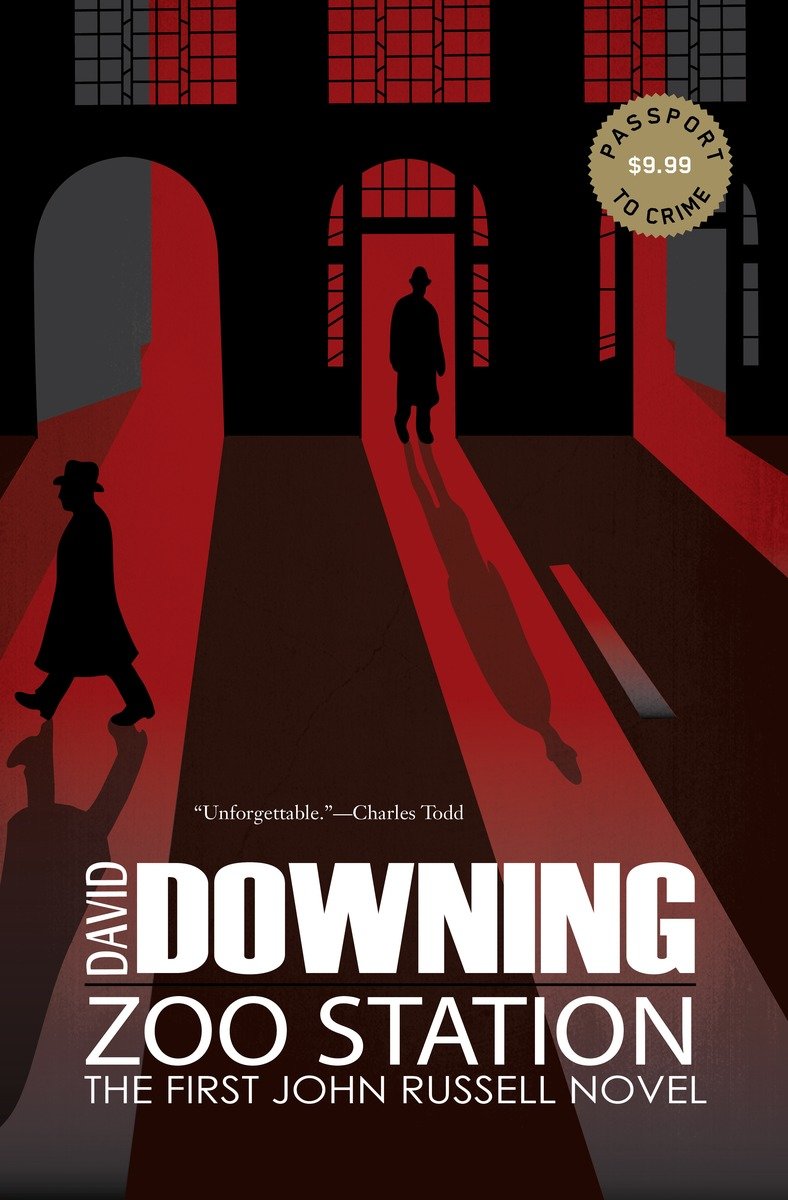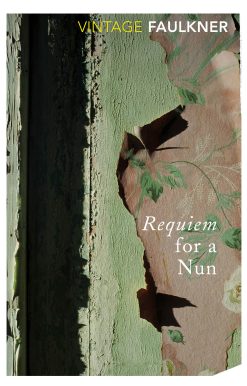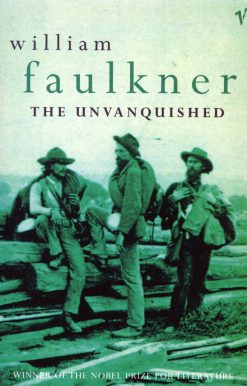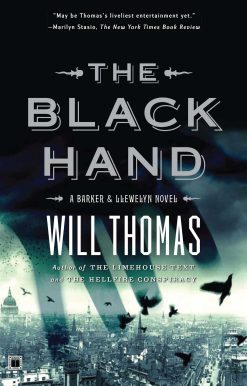Description
“In the elite company of literary spy masters Alan Furst and Philip Kerr . . . [Downing is] brilliant at evoking even the smallest details of wartime Berlin.”─Washington Post Berlin, 1939: Anglo-American journalist John Russell survives in Nazi Germany by keeping his head down. He writes human-interest pieces for British and American papers, avoiding the investigative journalism that could get him deported. But war is on the horizon, and every day is fraught with new risks.When an acquaintance from his communist days approaches him to do some work for the Soviets, Russell is reluctant, but he agrees in hopes that it will allow him to keep his family together. One dangerous assignment leads to another, and when the British and the Nazis notice his involvement with the Soviets, Russell is dragged into the murky world of warring intelligence services.
Additional information
| Weight | 0.30645 kg |
|---|---|
| Dimensions | 2.413 × 12.7762 × 19.05 cm |
| Author(s) | |
| Format Old` | |
| Language | |
| Publisher | |
| Year Published | 2013-5-28 |
| Imprint | |
| Publication City/Country | USA |
| ISBN 10 | 1616953489 |
| About The Author | David Downing grew up in suburban London. He is the author of numerous works of fiction and nonfiction for both adults and children, including four novels featuring Anglo-American journalist John Russell and the nonfiction work Sealing Their Fate: The Twenty-Two Days That Decided World War II. He lives with his wife in Guildford, England. |
Praise for Zoo Station"One of the most intelligent and persuasive realizations of Germany immediately before the war."—Wall Street Journal"[A]n unconventional thriller . . . A finely drawn portrait of the capital of a nation marching in step toward disaster as the Nazi rulers count cadence."—St. Louis Post-Dispatch "There's nothing better than a well-written WWII thriller. Alan Furst continues to prove it, and now Downing has shown he can produce that creepy sense of paranoia along with the best of them."—Rocky Mountain News "Smooth, scary wartime thriller drenched in period atmosphere."—Kirkus Reviews"Downing's fine new thriller introduces a clever and honorable hero . . . [the ending] will have readers holding their breath . . . Satisfying."—Publishers Weekly"If you like your tales spiced with morally ambiguous characters right out of Graham Greene, this is a train you need to be aboard . . . A marvelous return to cerebral espionage."—January Magazine"A deeply satisfying, suspenseful novel . . . David Downing's writing is intelligent and strong; his portrayal of issues and conflicts, clear and compelling . . . His imagery is so evocative that readers will feel they are watching a classic film, like Casablanca."—Mystery ScenePraise for David Downing "A beautifully crafted and compelling thriller with a heart-stopping ending as John Russell learns the personal faces of good and evil. An unforgettable read."─Charles Todd, author of the Inspector Ian Rutledge Series "One of the most intelligent and persuasive realizations of Germany immediately before the war."─Wall Street Journal "In the elite company of literary spy masters Alan Furst and Philip Kerr . . . [Downing is] brilliant at evoking even the smallest details of wartime Berlin on its last legs."─Washington Post“Downing distinguishes himself by eschewing the easy ways out. He doesn't shy away from portraying the cold brutality of the Third Reich, and his characters are far from stereotypes—they're flawed, confused and real.”—NPR |
|
| Excerpt From Book | THERE WERE TWO HOURS left of 1938. In Danzig it had beensnowing on and off all day, and a gang of children was enjoying a snowballfight in front of the grain warehouses which lined the old waterfront.John Russell paused to watch them for a few moments, thenwalked on up the cobbled street toward the blue and yellow lights.The Sweden Bar was far from crowded, and those few faces thatturned his way weren’t exactly brimming over with festive spirit. In fact,most of them looked like they’d rather be somewhere else.It was an easy thing to want. The Christmas decorations hadn’tbeen removed, just allowed to drop, and they now formed part of theflooring, along with patches of melting slush, floating cigarette butts,and the odd broken bottle. The bar was famous for the savagery of itsinternational brawls, but on this particular night the various groups ofSwedes, Finns, and Letts seemed devoid of the energy needed to getone started. Usually a table or two of German naval ratings could berelied upon to provide the necessary spark, but the only Germanspresent were a couple of aging prostitutes, and they were gettingready to leave.Russell took a stool at the bar, bought himself a Goldwasser, andglanced through the month-old copy of the New York Herald Tribunewhich, for some inexplicable reason, was lying there. One of his ownarticles was in it, a piece on German attitudes to their pets. It wasaccompanied by a cute-looking photograph of a Schnauzer.Seeing him reading, a solitary Swede two stools down asked him, inperfect English, if he spoke that language. Russell admitted that he did.“You are English!” the Swede exclaimed, and shifted his considerablebulk to the stool adjoining Russell’s.Their conversation went from friendly to sentimental, and sentimentalto maudlin, at what seemed like a breakneck pace. ThreeGoldwassers later, the Swede was telling him that he, Lars, was not thetrue father of his children. Vibeke had never admitted it, but he knewit to be true.Russell gave him an encouraging pat on the shoulder, and Larssunk forward, his head making a dull clunk as it hit the polished surfaceof the bar. “Happy New Year,” Russell murmured. He shifted theSwede’s head slightly to ease the man’s breathing, and got up to leave.Outside, the sky was beginning to clear, the air almost cold enoughto sober him up. An organ was playing in the Protestant Seamen’sChurch, nothing hymnal, just a slow lament, as if the organist were sayinga personal farewell to the year gone by. It was a quarter to midnight.Russell walked back across the city, conscious of the moisture seepingin through the holes in his shoes. There were lots of couples onLanger Markt, laughing and squealing as they clutched each other forbalance on the slippery sidewalks.He cut over to Breite Gasse and reached the Holz-Markt just as thebells began pealing in the New Year. The square was full of celebratingpeople, and an insistent hand pulled him into a circle of revelersdancing and singing in the snow. When the song ended and the circlebroke up, the Polish girl on his left reached up and brushed her lipsagainst his, eyes shining with happiness. It was, he thought, a betterthan-expected opening to 1939.HIS HOTEL'S RECEPTION AREA was deserted, and the sounds ofcelebration emanating from the kitchen at the back suggested thenight staff were enjoying their own private party. Russell gave up theidea of making himself a hot chocolate while his shoes dried in one ofthe ovens, and took his key. He clambered up the stairs to the third floor,and trundled down the corridor to his room. Closing the door behindhim, he became painfully aware that the occupants of the neighboringrooms were still welcoming in the new year, loud singing on one side,floor-shaking sex on the other. He took off his shoes and socks, dried hiswet feet with a towel, and sank back onto the vibrating bed.There was a discreet, barely audible tap on his door.Cursing, he levered himself off the bed and pulled the door open.A man in a crumpled suit and open shirt stared back at him.“Mr. John Russell,” the man said in English, as if he were introducingRussell to himself. The Russian accent was slight, but unmistakable.“Could I talk with you for a few minutes?”“It’s a bit late . . .” Russell began. The man’s face was vaguely familiar.“But why not?” he continued, as the singers next door reached fora new and louder chorus. “A journalist should never turn down a conversation,”he murmured, mostly to himself, as he let the man in.“Take the chair,” he suggested.His visitor sat back and crossed one leg over the other, hitching up histrouser as he did so. “We have met before,” he said. “A long time ago.My name is Shchepkin. Yevgeny Grigorovich Shchepkin. We. . . .”“Yes,” Russell interrupted, as the memory clicked into place. “Thediscussion group on journalism at the Fifth Congress. The summer oftwenty-four.”Shchepkin nodded his acknowledgment. “I remember your contributions,”he said. “Full of passion,” he added, his eyes circling the roomand resting, for a few seconds, on his host’s dilapidated shoes.Russell perched himself on the edge of the bed. “As you said—along time ago.” He and Ilse had met at that conference and set inmotion their ten year cycle of marriage, parenthood, separation, anddivorce. Shchepkin’s hair had been black and wavy in 1924; now it wasa close-cropped gray. They were both a little older than the century,Russell guessed, and Shchepkin was wearing pretty well, consideringwhat he’d probably been through the last fifteen years. He had ahandsome face of indeterminate nationality, with deep brown eyesabove prominent slanting cheekbones, an aquiline nose, and lips justthe full side of perfect. He could have passed for a citizen of mostEuropean countries, and probably had.The Russian completed his survey of the room. “This is a dreadfulhotel,” he said.Russell laughed. “Is that what you wanted to talk about?”“No. Of course not.”“So what are you here for?”“Ah.” Shchepkin hitched his trouser again. “I am here to offer youwork.”Russell raised an eyebrow. “You? Who exactly do you represent?”The Russian shrugged. “My country. The Writer’s Union. It doesn’tmatter. You will be working for us. You know who we are.”“No,” Russell said. “I mean, no I’m not interested. I—”“Don’t be so hasty,” Shchepkin said. “Hear me out. We aren’t askingyou to do anything which your German hosts could object to.” TheRussian allowed himself a smile. “Let me tell you exactly what we havein mind. We want a series of articles about positive aspects of the Naziregime.” He paused for a few seconds, waiting in vain for Russell todemand an explanation. “You are not German but you live in Berlin,”Shchepkin went on. “You once had a reputation as a journalist of theleft, and though that reputation has—shall we say—faded, no onecould accuse you of being an apologist for the Nazis . . .”“But you want me to be just that.”“No, no. We want positive aspects, not a positive picture overall.That would not be believable.”Russell was curious in spite of himself. Or because of the Goldwassers.“Do you just need my name on these articles?” he asked. “Ordo you want me to write them as well?”“Oh, we want you to write them. We like your style—all that irony.”Russell shook his head: Stalin and irony didn’t seem like much of amatch.Shchepkin misread the gesture. “Look,” he said, “let me put all mycards on the table.”Russell grinned.Shchepkin offered a wry smile in return. “Well, most of them anyway.Look, we are aware of your situation. You have a German son anda German lady-friend, and you want to stay in Germany if you possiblycan. Of course if a war breaks out you will have to leave, or else theywill intern you. But until that moment comes—and maybe it won’t—miracles do happen—until it does you want to earn your living as ajournalist without upsetting your hosts. What better way than this? Youwrite nice things about the Nazis—not too nice, of course; it has to becredible—but you stress their good side.”“Does shit have a good side?” Russell wondered out loud.“Come, come,” Shchepkin insisted, “you know better than that.Unemployment eliminated, a renewed sense of community, healthychildren, cruises for workers, cars for the people. . . .”“You should work for Joe Goebbels.”Shchepkin gave him a mock-reproachful look.“Okay,” Russell said, “I take your point. Let me ask you a question.There’s only one reason you’d want that sort of article: You’re softeningup your own people for some sort of deal with the devil. Right?”Shchepkin flexed his shoulders in an eloquent shrug.“Why?”The Russian grunted. “Why deal with the devil? I don’t know whatthe leadership is thinking. But I could make an educated guess and socould you.”Russell could. “The western powers are trying to push Hitler east,so Stalin has to push him west? Are we talking about a non-aggressionpact, or something more?”Shchepkin looked almost affronted. “What more could there be?Any deal with that man can only be temporary. We know what he is.”Russell nodded. It made sense. He closed his eyes, as if it were possibleto blank out the approaching calamity. On the other side of theopposite wall, his musical neighbors were intoning one of those Polishriver songs which could reduce a statue to tears. Through the wall behindhim silence had fallen, but his bed was still quivering like a tuning fork.“We’d also like some information,” Shchepkin was saying, almostapologetically. “Nothing military,” he added quickly, seeing the look onRussell’s face. “No armament statistics or those naval plans that SherlockHolmes is always being asked to recover. Nothing of that sort. Wejust want a better idea of what ordinary Germans are thinking. Howthey are taking the changes in working conditions, how they are likelyto react if war comes—that sort of thing. We don’t want any secrets,just your opinions. And nothing on paper. You can deliver them in person,on a monthly basis.”Russell looked skeptical.Shchepkin ploughed on. “You will be well paid—very well. In anycurrency, any bank, any country, that you choose. You can move into abetter apartment block. . . .”“I like my apartment block.”“You can buy things for your son, your girlfriend. You can haveyour shoes mended.”“I don’t. . . .”“The money is only an extra. You were with us once. . . .”“A long long time ago.”“Yes, I know. But you cared about your fellow human beings. Iheard you talk. That doesn’t change. And if we go under there will benothing left.”“A cynic might say there’s not much to choose between you.”“The cynic would be wrong,” Shchepkin replied, exasperated andperhaps a little angry. “We have spilled blood, yes. But reluctantly, andin hope of a better future. They enjoy it. Their idea of progress is aEuropean slave-state.”“I know.”“One more thing. If money and politics don’t persuade you, think ofthis. We will be grateful, and we have influence almost everywhere.And a man like you, in a situation like yours, is going to need influentialfriends.”“No doubt about that.”Shchepkin was on his feet. “Think about it, Mr. Russell,” he said,drawing an envelope from the inside pocket of his jacket and placingit on the nightstand. “All the details are in here—how many words,delivery dates, fees, and so on. If you decide to do the articles, write toour press attaché in Berlin, telling him who you are, and that you’vehad the idea for them yourself. He will ask you to send him one in thepost. The Gestapo will read it, and pass it on. You will then receive yourfirst fee and suggestions for future stories. The last-but-one letters ofthe opening sentence will spell out the name of a city outside Germanywhich you can reach fairly easily. Prague, perhaps, or Cracow. You willspend the last weekend of the month in that city, and be sure to makeyour hotel reservation at least a week in advance. Once you are there,someone will contact you.”“I’ll think about it,” Russell said, mostly to avoid further argument.He wanted to spend his weekends with Paul, and with Effi, his girlfriend,not the Shchepkins of this world.The Russian nodded and let himself out. As if on cue, the Polishchoir lapsed into silence.RUSSELL WAS WOKEN BY the scream of a locomotive whistle. Or atleast, that was his first impression. Lying there awake all he couldhear was a gathering swell of high-pitched voices. It sounded like aschool playground full of terrified children.He threw on some clothes and made his way downstairs. It was stilldark, the street deserted, the tramlines hidden beneath a virginalsheet of snow. In the train station booking hall across the street a coupleof would-be travelers were hunched in their seats, eyes averted,praying that they hadn’t strayed into dangerous territory. Russell strodethrough the unmanned ticket barrier. There were trucks in the goodsyard beyond the far platform, and a train stretched out past the stationthroat. People were gathered under the yellow lights, mostly familiesby the look of them, because there were lots of children. And therewere men in uniform. Brownshirts.A sudden shrill whistle from the locomotive produced an eerieecho from the milling crowd, as if all the children had shrieked atonce.Russell took the subway steps two at a time, half-expecting to findthat the tunnel had been blocked off. It hadn’t. On the far side, heemerged into a milling crowd of shouting, screaming people. He hadalready guessed what was happening—this was a kindertransport,one of the trains hired to transport the ten thousand Jewish childrenthat Britain had agreed to accept after Kristallnacht. The shriek hadrisen at the moment the guards started separating the children fromtheir parents, and the two groups were now being shoved apart bysnarling brownshirts. Parents were backing away, tears running downtheir cheeks, as their children were herded onto the train, some wavingfrantically, some almost reluctantly, as if they feared to recognizethe separation.Further up the platform a violent dispute was underway between anSA Truppführer and a woman with a red cross on her sleeve. Both werescreaming at the other, he in German, she in northern-accented English.The woman was beside herself with anger, almost spitting in thebrownshirt’s eye, and it was obviously taking everything he had not tosmash his fist into her face. A few feet away one of the mothers wasbeing helped to her feet by another woman. Blood was streamingfrom her nose.Russell strode up to the brownshirt and the Englishwoman andflashed his Foreign Ministry press accreditation, which at least gave theman a new outlet for his anger.“What the fuck are you doing here?” the Truppführer shouted. Hehad a depressingly porcine face, and the bulk to go with it.“Trying to help,” Russell said calmly. “I speak English.”“Well then tell this English bitch to get back on the train with thekike brats where she belongs.”Russell turned to the woman, a petite brunette who couldn’t havebeen much more than twenty-five. “He’s not worth screaming at,” hetold her in English. “And it won’t do you any good. In fact, you’ll onlymake matters worse.”“I . . .” She seemed at a loss for words.“I know,” Russell said. “You can’t believe people could behave likethis. But this lot do. All the time.”As if to emphasize the point, the Truppführer started shoutingagain. When she started shouting back he reached for her arm, and shekicked him in the shin. He backhanded her across the face with whatseemed like enormous force, spinning her round and dumping herface-first on the snowy platform. She groaned and shook her head.Russell put himself between them. “Look,” he said to the man,“this will get you court-martialed if you’re not careful. The Führerdoesn’t want you giving the English this sort of a propaganda victory.”The British woman was groggily raising herself onto all fours. Thestormtrooper took one last look at his victim, made a “pah!” noise ofwhich any pantomime villain would have been proud, and strode awaydown the platform.Russell helped her to her feet.“What did you say to him?” she asked, gingerly feeling an alreadyswellingcheek.“I appealed to his better nature.”“There must be someone. . . .” she began.“There isn’t,” he assured her. “The laws don’t apply to Jews, or anyonewho acts on their behalf. Just look after the children. They look likethey need it.”“I don’t need you to tell me. . . .”“I know you don’t. I’m just trying. . . .”She was looking past his shoulder. “He’s coming back.”The Truppführer had a Sturmführer with him, a smaller man withround glasses and a chubby face. Out of uniform—assuming they evertook them off—he put them down as a shopkeeper and minor civil servant.Danzig’s finest.“Your papers,” the Sturmführer demanded.“They’re in my hotel room.”“What is your name?”“John Russell.”“You are English?”“I’m an English journalist. I live in the Reich, and I have full accreditationfrom the Ministry of Propaganda in Berlin.”“We shall check that.”“Of course.”“And what are you doing here?”“I came to see what was happening. As journalists do. I intervened inthe argument between your colleague and this Red Cross worker becauseI thought his behavior was damaging the reputation of the Reich.”The Sturmführer paused for thought, then turned to his subordinate.“I’m sure my colleague regrets any misunderstanding,” he saidmeaningfully.The Truppführer looked at the woman. “I apologize,” he saidwoodenly.“He apologizes,” Russell told her.“Tell him to go to hell,” she said.“She accepts your apology,” Russell told the two brownshirts.“Good. Now she must get back on the train, and you must comewith us.”Russell sighed. “You should get on the train,” he told her. “Youwon’t get anywhere by protesting.”She took a deep breath. “All right,” she said, as if it was anything but.“Thank you,” she added, offering her hand.Russell took it. “Tell the press when you get back to civilization,” hesaid, “and good luck.”He watched her mount the steps and disappear into the train. Thechildren were all aboard now; most had their faces pressed against thewindows, frantically wiping their breath from the glass to get a last clearlook at their parents. A few had managed to force back the sliding ventilatorsand wedge their faces in the narrow gap. Some were shouting,some pleading. Most were crying. |
| series |
Only logged in customers who have purchased this product may leave a review.






Reviews
There are no reviews yet.